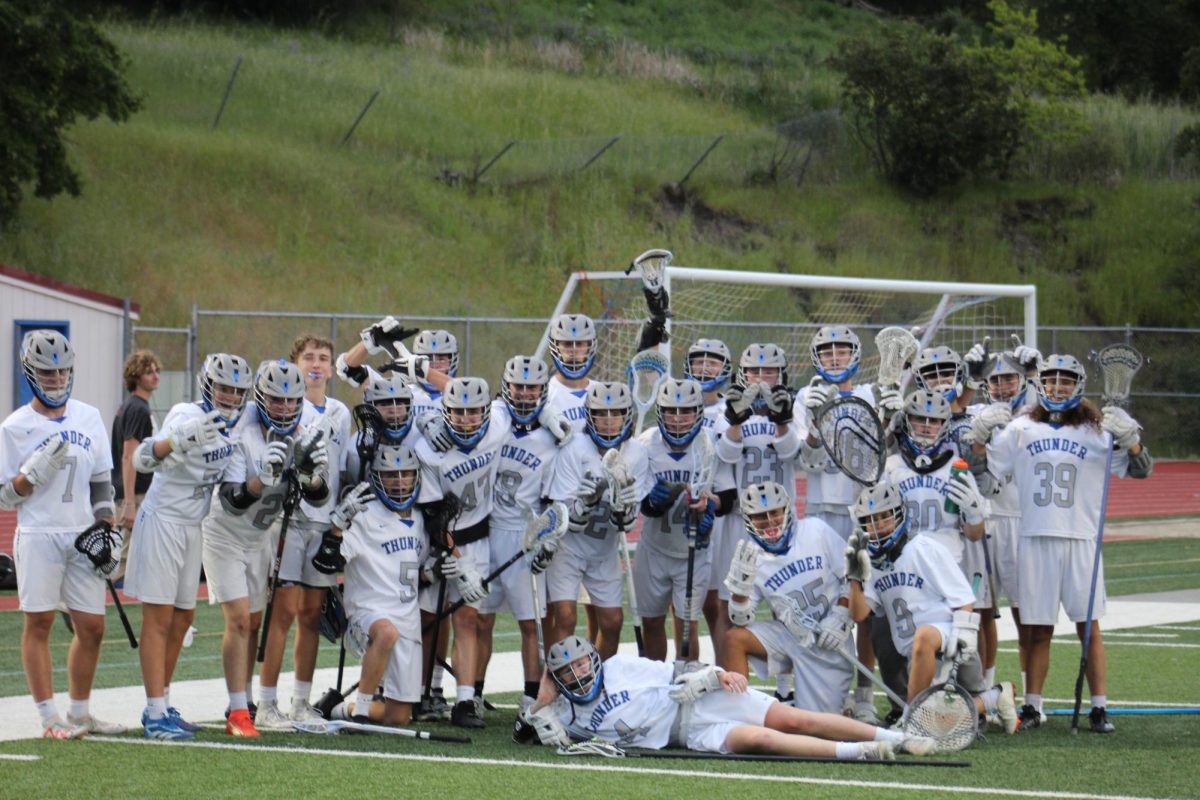Breaking the Code
Violation of Athletic Code brings up discussion of review
September 16, 2015
When the football team took the field to play Whitney, it was no secret that a handful of players were not suited up. Given events that occurred a few weeks ago, players have faced consequences for violating the Athletic Code of Conduct. While it is important to hold student athletes accountable for their actions, questions have been raised about how effective the code of conduct is.
Principal Davis Stewart said, “At the beginning of the year, all our sports programs, and even some of our extracurricular programs, and all our student athletes and people who participate in those sign an athletic code of conduct. They may not agree with it, but they agree to abide by that. Not only does the student sign it but the student athlete’s parents sign that.”
How well-read the code actually is remains the question. It becomes much like a terms and conditions contract- the content never seems to change, so why is it worth the time to completely read and comprehend what is stated in the code? Students tend to overlook the significance of the content they are signing and leads them to act without thought towards their athletic integrity.
Regardless, if an athlete makes a poor choice knowing that there will be consequences, it is on them to accept their wrong doing. No matter the excuses and/or protests, the agreement was signed and responsibility must be accepted.
The Athletic Handbook can be found on the Rocklin High School website, under the athletics tab. Filed there is a link for the “2013 handbook.” Once opened, the table of contents states that the handbook was last revised in September of 2010.
The ambiguity of the versions athletes are reading raises the question of whether or not the code is still the code administration expects them to follow. If administration requires students to adhere to this code, then they should at least provide students and parents with an easily accessible, updated version every year.
A significant loophole in the handbook is the fact that there is a failure to explain the student’s right to due process. When athletes are given a punishment for their wrongdoing, the code of conduct has no reference on how they go about appealing it.
Moreover, what does administration do to the student athlete who is present at an inappropriate situation, yet is either not participating in said behavior or is suspected of participation without proof?
This is an opportunity to review the code and make minor changes, alleviate student questions and parent complaints and prevent a similar situation from happening again. Using the athletic senate, administration could clarify both behavioral expectations and consequences of breaking the Rocklin High Athletic Code of Conduct.
Rocklin High’s Athletic Code of Conduct, revised 9/21/2010, promptly states:
Class III Infractions – Substance Abuse (Drugs/Alcohol):
A Class III Infraction occurs when commission of either of the following violation of Education Code Section 48900 (c) and (d) at any time during the school year, at school or in the community, when observed by school officials, reported by a parent or guardian, or otherwise proven by investigation.
- Possession or use of alcohol
- Possession or use of controlled substances (drugs) including steroids, other than those which are medically prescribed.
Class III Disciplinary Actions:
- First Offense: The student will be suspended from competition for 30 days, or for 15 days plus completion of drug/alcohol assessment with ongoing involvement in the activities recommended by the assessment. Recommendation of the assessor will be shared with the principal in order that he/she may monitor adherence to the program. The student may participate in practice at the discretion of the coach and Principal.
Code of Conduct (Cont.)
- Second and Subsequent Offenses: The student/athlete will be suspended from competition/participation for 60 days, or 30 days plus completion of a drug and alcohol assessment, with ongoing involvement in activities recommended by the assessment. The recommendations of the assessor will be shared with the principal in order that he/she may monitor adherence to the program. The student may participate in practice at the discretion of the coach and principal.
- Self-Disclosure: Students who voluntarily disclose substance abuse dependency to school personnel/parents and who involve themselves in an assessment and treatment program will not be penalized under this policy. The recommendations of the assessor will be shared with the principal in order that he/she may monitor adherence to the program.

















